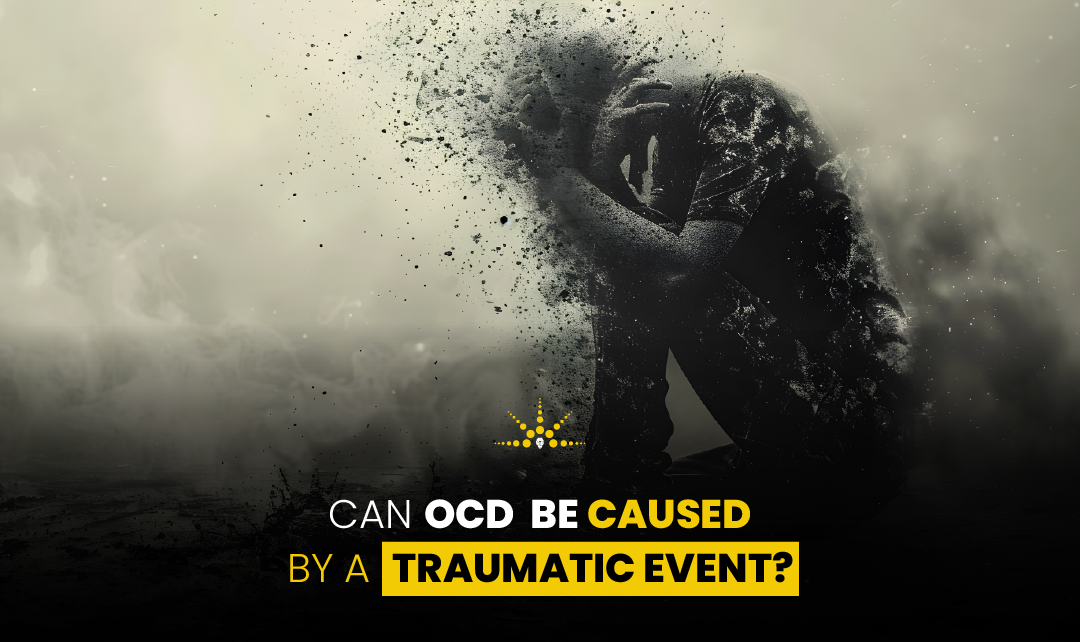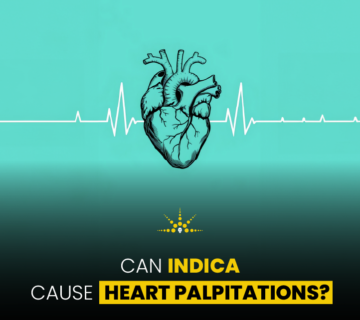Obsessive-Compulsive Disorder, or OCD, is a mental health issue. It involves obsessive thoughts and compulsive actions. You might wonder, “Can OCD be caused by a traumatic event?” This question is complex. The relationship between OCD and trauma isn’t simple. Yet, negative experiences can trigger OCD.
Let’s delve into the link between OCD and trauma. We’ll look at how trauma affects our minds, possibly causing OCD signs. We’ll also touch upon what can set off OCD and why it’s crucial to grasp the connection between OCD and trauma.
Safestar Psychiatric and Wellness LLC offers compassionate care for trauma-related OCD. Our expert team employs proven methods to aid in your healing. Contact us today.
What is OCD?
OCD is a mental health issue. It often leads to unwanted thoughts or images, known as obsessions. They feel urged to act in certain ways, known as compulsions, to reduce their anxiety. People often obsess over bacteria, security, or finding balance. Compulsions can manifest as extensive cleaning, repetitive checking, or continual counting. These acts shatter an individual’s daily routine and deeply ingrained traditions.
Trauma and Its Impact
Trauma is the emotional reaction to a shocking, intense experience. It can be too much for a person to handle. Traumatic events can encompass:
- Accidents
- Natural disasters
- Physical or emotional abuse
- Sudden loss of a loved one
Trauma is tough. It messes with your mental health long after the event. PTSD, for instance, might show up. But it’s not always PTSD. Anxiety disorders and OCD could surface too.
Can OCD Be Caused by a Traumatic Event?
“Can OCD be caused by a traumatic event?” That’s a question many ask. Experiencing a traumatic event and noticing OCD signs, people start to wonder. It’s not just about your genes or biology, sometimes trauma kick-starts OCD. Studies show those with past trauma are at a higher risk for OCD, compared to those without any.
Trauma can trigger intense feelings like fear, helplessness, and chaos. It may lead to endless overthinking and obsessive habits to cope. For example, someone who has faced severe trauma might become overly cautious. They may develop routines to avoid similar situations. This can complicate daily life and increase stress.
The Connection Between PTSD and OCD
It’s important to understand the link between PTSD and OCD. Both disorders can have similar symptoms. They include persistent thoughts and avoidance. This makes it hard to tell them apart. In some cases, people may show signs of both PTSD and OCD, more so if the traumatic event is extreme. If a person makes it through a horrifying incident, they might develop PTSD and OCD. Obsessive actions could be their method of handling the huge stress load.
How Trauma Can Trigger OCD Symptoms
Fear and anxiety can change how the brain works due to trauma, possibly leading to OCD. Sometimes, a traumatic event can start OCD signs, more so if someone is already likely to get the disorder. Research shows a link between OCD and trauma. People are more likely to have OCD as adults if they face trauma in childhood.
Here are some ways trauma can trigger OCD symptoms:
- Heightened anxiety levels, which lead to obsessive thoughts
- Development of compulsive behaviors as a means to feel in control
- Repeated exposure to traumatic reminders, which can worsen OCD symptoms
Can Childhood Trauma Cause OCD?
Can childhood trauma cause OCD? The answer is yes; bad experiences during childhood have a huge impact on causing OCD. Kids going through rough times like abuse, neglect, or seeing violence may start developing OCD to deal with their flood of emotions. OCD-related compulsions can be a misdirected effort to find control in an unpredictable and harmful world.
Common OCD Triggers
Trauma is a big deal, yet it isn’t the only thing that can start OCD. Other experiences can also be responsible. Here are some usual suspects:
- Life’s tough breaks, like getting divorced or losing your job.
- Big shifts in your world, like moving to a new home or starting a different job.
- Even some infections could do it, such as PANDAS syndrome in children.
Understand this, triggers alone don’t cause OCD. But yes, they can reveal symptoms in people who already have a potential for this disorder. Knowing what these triggers are helps a lot. It aids in controlling OCD symptoms and enhances the quality of life.
Is OCD Caused by Trauma?
Think about whether OCD comes from trauma. Know that trauma can play a part, but there’s often more to the story with OCD. It can come from your genes, your biology, or your surroundings. Trauma doesn’t always lead to OCD. Likewise, not all OCD has ties to trauma. Identifying the cause of each person’s OCD is important. It leads to better treatment.
Can You Develop OCD From Trauma?
Can you develop OCD from trauma? Indeed, it might. Trauma can stir up intense fear and anxiety. This could make some people get OCD as a way to handle it. OCD behaviors might help lessen anxiety for a while. But, they don’t tackle the real trauma. That’s why experts are usually necessary.
Treatment Options for OCD Linked to Trauma
For those fighting with OCD tied to trauma, getting help is crucial. The best solution is Cognitive-Behavioral Therapy (CBT). It’s Exposure and Response Prevention (ERP) that works best. It’s great for dealing with OCD. The therapy enables people to face their fears and lessen compulsive behaviors. If trauma is a factor, therapy might target the event. It aims to lessen its impact on a person’s mental health.
Drugs like SSRIs might help control OCD symptoms. For people with OCD, a distressing event can help. A mix of therapy and medicine often works best. Here are some action items to think about for treating OCD:
- Get Expert Advice: A mental health expert can provide a diagnosis and a treatment plan.
- Explore Therapy Options: Techniques like CBT and ERP work.
- Consider Medications: SSRIs can work to control symptoms when paired with therapy.
- Support Groups: Becoming part of a help group can offer extra emotional support.
How to Cope with OCD and Trauma
Dealing with OCD and trauma is not easy, but useful tactics exist. Here’s what can assist:
- Mindfulness and Relaxation Techniques: Activities such as meditation can lessen anxiety and boost wellness.
- Routine Therapy Sessions: Routine dialogues with a therapist may aid in managing OCD and trauma.
- Support Networks: Rely on friends, family, or support groups who get your experiences.
Don’t forget, you’re not alone. Help is out there. OCD and trauma can take time to heal. But, with support, a fulfilling life is possible.
Which of the Following Is Not an OCD-Related Disorder?
OCD and trauma are often linked, but it’s crucial to understand OCD isn’t the same as other conditions. “What’s not an OCD-related disorder?” That’s a question you might hear frequently. While OCD often occurs with conditions like anxiety and PTSD, they are different. But not every anxiety condition links directly to OCD. Knowing each disorder’s details is key to spotting it correctly and treating it well.
Final Thoughts on OCD and Trauma
“Can OCD be caused by a traumatic event?” It’s hard to say, but we know that trauma can sometimes lead to OCD signs in certain people. Not all people with OCD have faced a rough event, and not all those who’ve had a hard experience get OCD. But there’s a strong link between the two. This link can guide effective care for those with OCD and trauma.
Knowing the link between OCD and trauma helps in recovery and managing symptoms. Healing is possible via professional help, medicine, or friends and family support. Anyone dealing with OCD, more so if it’s tied to old traumatic incidents, can foster hope.
FAQs
How does trauma impact OCD?
Trauma can spike anxiety and fear, making it tough for people to control their feelings. This can cause OCD symptoms to form, as a method of regaining stability or lowering anxiety.
Can childhood trauma cause OCD?
Indeed, childhood trauma, like abuse or disregard, can ramp up the chances of getting OCD. Hard times in early life might trigger compulsive actions. They may be a way to cope with strong feelings and fears.







No comment